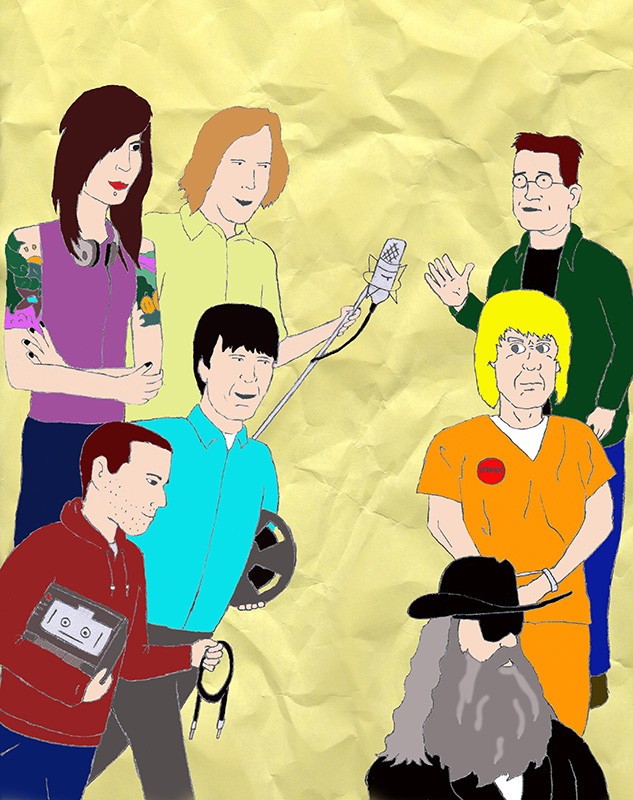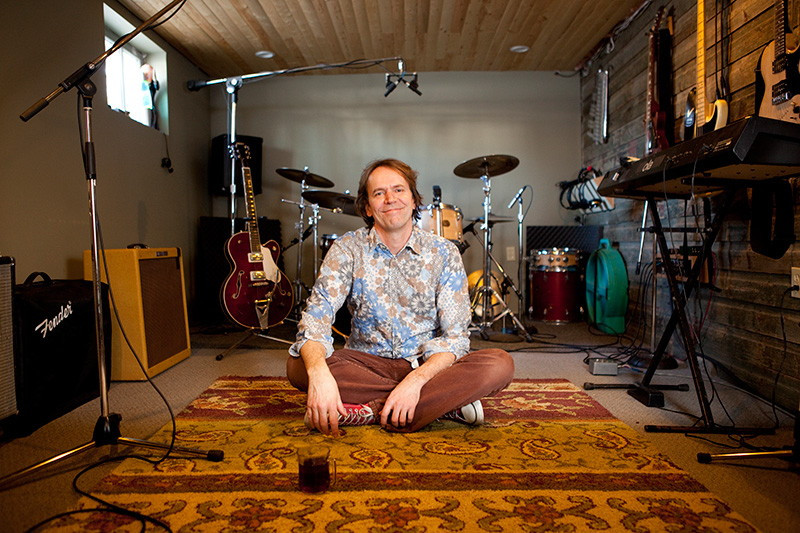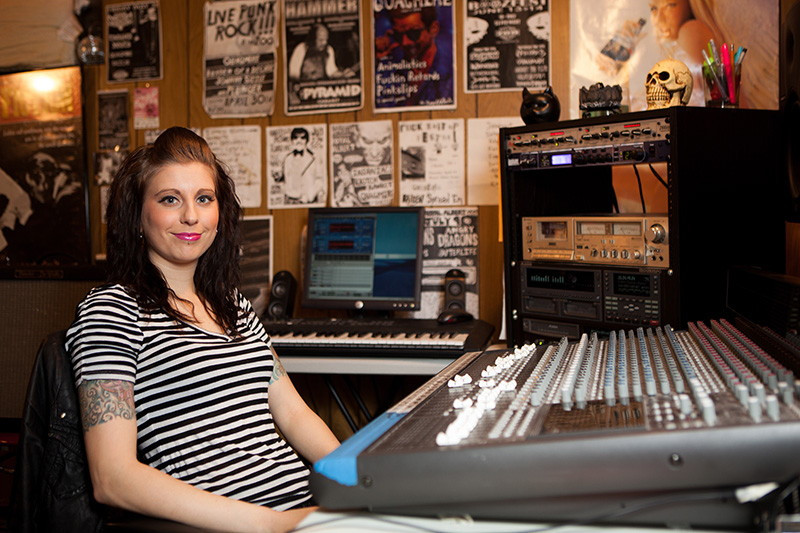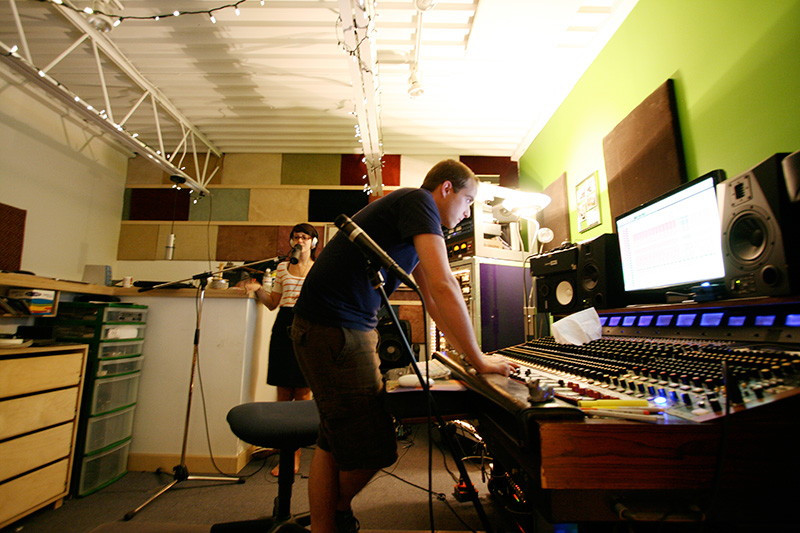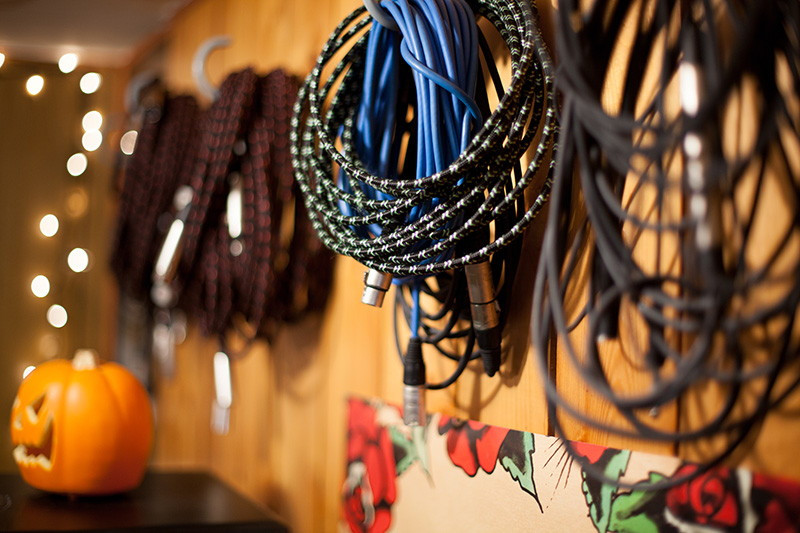Who produced it?
Four Winnipeg record producers/recording engineers reflect on the work that they do
Steve Albini. Howard Bilerman. Rick Rubin. Jon Brion. Phil Spector. These are the names of some of the most innovative, beloved and notorious record producers/recording engineers of all time. What’s in a name though and what do they think about capturing that perfect sound? Do they help shape the musician’s vision? And - that question no musician really wants to know the answer to - how much is this gonna cost?
“I remember when Stagmummer brought Steve Albini into the old Private Ear to do an album (1997’s Rim) and Albini was the magic, indie, cool kid name,” says local musician/engineer/producer Lloyd Peterson.
“He charged them a few hundred bucks, slept on one of their couches and the only other thing he wanted was a Garnet amp. That’s how much it cost them to get Albini to fly here from Abbey Road where he was working with Page and Plant, then back to London to work with Bush. People are approachable. People that wanna make music just keep doing it. Here I am 20 years later still doing it - it’s still fun.”
Peterson, who has recorded everyone from Death Cab for Cutie to Frank Stallone, got his start playing in memorable ‘80s group The Cheer, who, in 1986, got enough guts up to ask Bob Rock (Metallica) to produce its sophomore record.
“We started drawing up a list of producers that we wanted to work with and we just wrote one name - Bob Rock. Let’s at least get a ‘no’ from Bob Rock and then we’ll work on the rest of the list,” Peterson recalls.
“I just got on the phone and started harassing the studio in Vancouver that he worked at, Little Mountain Sound. They put us in touch with him and we sent him a demo and he went, ‘Yeah great, get out here.’ That was amazing to me because it was the first time I saw somebody work with a band and try to get them to really focus on the song before recording it. It was sort of a key moment for me.”
That moment resulted in Peterson co-founding beloved Winnipeg studio Private Ear Recording with Neil Cameron in 1994, during which time he worked with the Weakerthans, Luke Doucet and Nathan.
After the original Private Ear closed up shop in 2006 (the current incarnation is run by Cameron and John Paul Peters), he founded Wonder Dog Recording in 2007, his home studio which showcases what Peterson believes to be Winnipeg’s first residential green roof.
“I put an addition on that wasn’t just sonically good but was also a little bit more respectful of the environment,” he says of the flat, sod covered roof.
“It’s being used in Europe a lot for passive cooling and noise control. Both of those things are pretty strong values in a recording studio. You don’t wanna have a lot of fan noise where people are recording. It’s just a comfortable place. It doesn’t seem like a big expensive mothership where you gotta watch the clock every minute.”
Making musicians comfortable
“It’s my job to help make (the musicians) comfortable,” Peterson says. “It’s not just about knowing the technical side. You have to be part psychologist and part coach and part cheerleader. You also have to stay out of the way if that’s what is called for and let that unfold.”
Creating that comfortable environment is important as an engineer. If an artist isn’t relaxed, the performance won’t be genuine.
Though when it’s a home studio, musicians can get a little too comfortable at times.
“One time a band was in my house and at the end of the session they went upstairs and started jamming and I was like, ‘This isn’t a studio, this is my house!’” recalls Cam Loeppky.
Having worked for 14 years behind the boards as an engineer/producer/soundman for the Weakerthans and Greg Macpherson, Loeppky recently opened up shop in his home.
“If I’m doing my own thing I consider myself a producer,” he says. “(Musicians) want ‘that sound.’ Getting that sound is difficult. I consider myself a producer as I get sounds for the band and help them with parts and arrangements and whatever.”
As time in the studio is tight, there’s no reason to beat around the bush. If something isn’t working, Loeppky believes it’s the job of the producer to move things along.
“I’m pretty straight up about how I think it should be,” he says. “If I give them my opinion and they say, ‘No, this is how we want it to be,’ then I’ll step back. I’m never afraid to tell them how I feel it should be.”
“Should someone come in from outside a group that has its own chemistry and try to impose their own idea of it?” Peterson ponders. “You’ve got your Steve Albinis that are just like documentary filmmakers. They don’t change the music at all. There’s the other extreme that will write the material and put the bed tracks together and hire a singer to do their bidding. Somewhere in between is where most of us live.”
“I always give my input,” engineer/producer/Quagmire bassist Kalyn Hanuschuk says. “If I hear something that might make their song stand out a bit more then I’ll suggest it but they can take it or leave it. It’s more a creative ground than just sitting there pushing buttons.”
Since graduating from the Mid-Ocean School of Media Arts in 2010, Hanushchuk has worked on 10 projects ranging from corporate video soundtracks to LPs by local punk heroes Phlegm Fatale, Animalistics and JohNNy SiZZle. Operating out of her basement studio (nicknamed “Quaghouse”), she records analog straight to tape, as opposed to Pro-Tools. The retro aesthetic doesn’t end there.
“The basement has a hideous green shag carpet, which is a huge sound barrier, along with this gross ‘70s wood panelling,” she says. “It has a nice contrast between live sound and sound absorption. I didn’t have to alter a lot when I went in there.”
Doing it yourself falls into that punk rock ethos, and Hanuschuk is the perfect Winnipeg example of this.
“In punk rock there’s a mission statement that there’s no money, which is quite frustrating, but she makes all kinds of other music,” Ryan McVeigh, Mid-Ocean instructor/engineer/producer/musician notes. “Once people hear the stuff that she’s doing and that she’s one of the only women doing that in town and she’s doing it herself, that’s really awesome. She’s tough and she has a good ear.”
“ It’s not just about knowing the technical side. You have to be part psychologist and part coach and part cheerleader. You also have to stay out of the way if that’s what is called for and let that unfold.
Lloyd Peterson
Getting his start
Having worked at Mid-Ocean since graduating from its program in 1999, McVeigh doesn’t see a lot of females come through the program. Its current class of 15 doesn’t have any.
“I have no idea why that is - typically the women are better as students,” he says. “They have good ears, the organizational aspect, the multitasking aspect - if you took the male and female grades and put them alongside each other, it’d be astounding.”
Getting his start recording his friend’s band on a boom box (“We kept putting blankets over the mic to filter the sound”), McVeigh quickly made the shift to four-track recorder, then digital eight-track and eventually jumped into the Mid-Ocean program.
“When I first started working here they didn’t pay me in money,” he says of his former position of administrative assistant. “They paid me in studio hours, every two hours I worked I got one hour of studio time. In my first six months here I amassed 450 studio hours to use at my discretion.
“Cone Five was the first band that I did everything they recorded. They forced me out of my comfort zone, recording live off the floor so mixing was done on the fly. What it informed me of was that I didn’t have to make these perfect records. It was more about capturing something spontaneous and interesting. To this day that’s still what I seek to work on.”
Having recorded albums with such noted Winnipeg groups as Enjoy Your Pumas, Boats and Consumer Goods, McVeigh says that most of his work has stemmed from doing the five Cone Five records, as many locals such as Mat Klachefsky from Boats, were involved in those recordings.
“Personally I don’t really go out of my way to pursue bands,” McVeigh says. “I don’t go to shows and hand out my card. Not that I frown at that, I just don’t have the personality for it.”
Finding the sound
Though musicians may want to achieve a sound or feel they liked on a record they’ve heard, that doesn’t mean it’s doable on theirs.
“Even the same band on a different day can sound different,” McVeigh notes. “I don’t mind influencing it in a certain way. Even engineers that say they don’t produce like Steve Albini, well, he’s gathering sounds based initially on what he likes and because of who he is and how much experience he has people say they like it. To some degree there’s decision-making going on and whether or not that’s producing is arguable.”
“I don’t think I have a sound,” Peterson says. “I don’t like to colour it in the same way every time. I try to tie the sound to what the band is trying to do. Look at somebody like Rick Rubin, I really admire him. From the Beastie Boys to Johnny Cash he manages to find a way to produce interesting records, period. It’s not related to the genre. It always sound great.”
Even if a musician likes an engineer’s sound, they may not think they have one. Hanuschuk was turning away clients for the first year until she got more comfortable with her own sound.
“I didn’t want people see me figure things out as I go,” she says. “Sometimes I go to the mix and certain things will come up where I wish I did something differently. People come in and they’re excited to play and they neglect certain details. That will come with time. It’s a lot of reading if I want a certain type of sound. I try to do it myself first so that when people come in I’m not screwing up their whole album.”
At the end of the day though, it does fall on the musician to deliver the goods.
“Motivating people…” begins Loeppky. “It’s hard to explain. Trying to tell someone they’re shit and motivate them at the same time, you have to really watch what you say sometimes. I use the phrase, ‘Oh that was my fault, let’s try it again.’”
Published in Volume 67, Number 21 of The Uniter (February 28, 2013)

